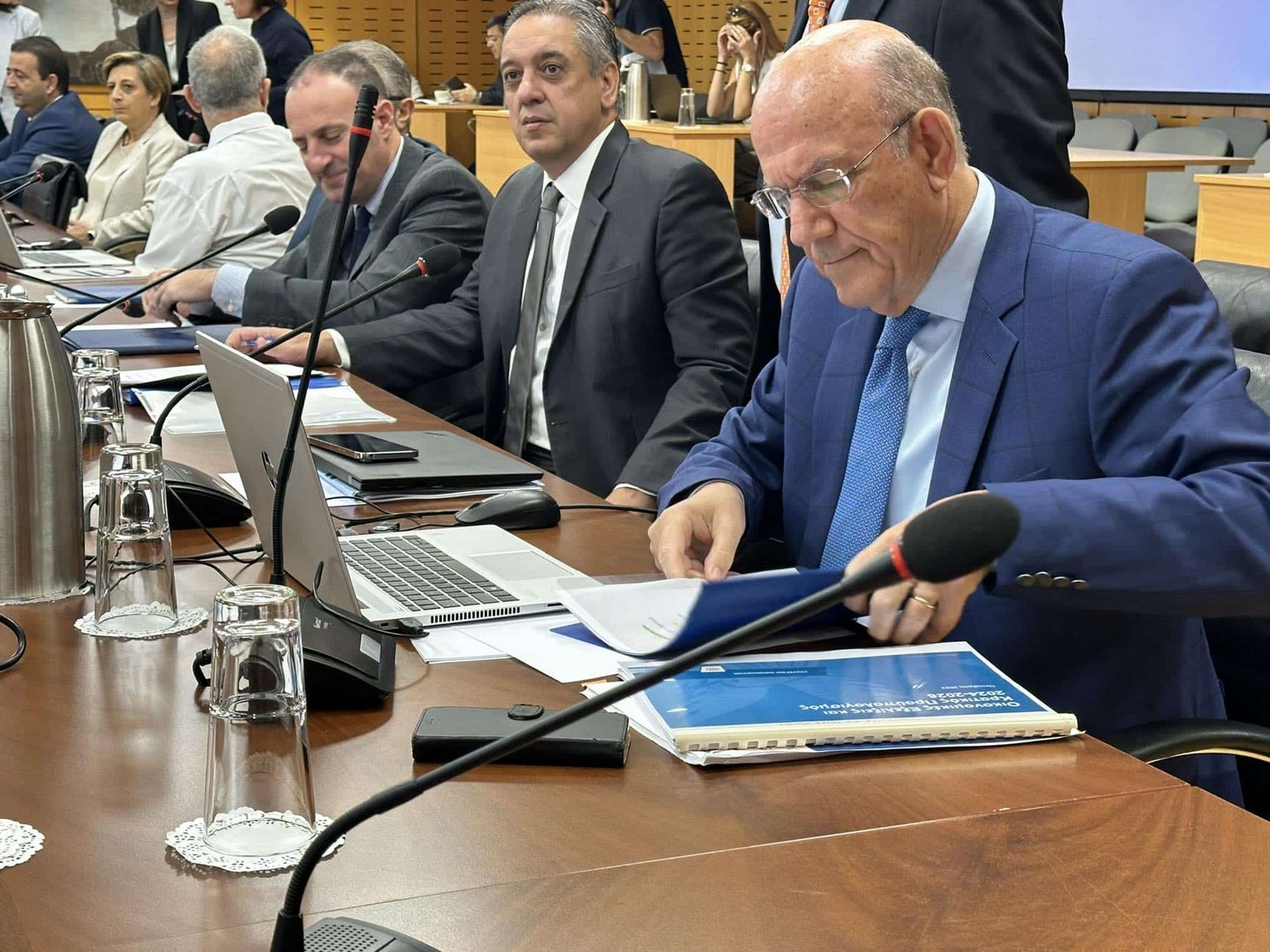By Elias Hazou and Nick Theodoulou
The proposed state budget for 2024 focuses on fiscal stability and achieving greater strides towards the ‘green transition’ and digital transformation, Finance Minister Makis Keravnos said on Monday.
His comments came at the House finance committee’s first discussion of the budget, where the minister sought to bolster support ahead of a vote – expected in mid-December.
“This is a surplus budget, precisely because we are living during a period of uncertainties and continuous negative developments,” he said.
Keravnos added that the budget is designed to meet Cyprus’ EU obligations regarding public debt.
As for a longer-term view, the minister stressed that the budget is being prepared during a period of immense financial uncertainty due to geopolitical developments.
Earlier this month, when Keravnos first presented the budget, the Cyprus Mail reported that a new carbon tax is on the way as part of Cyprus’ commitments to the EU – although the government has promised some offsets.
The 2024 budget projects a surplus of €659 million, equivalent to 2.2 per cent of GDP. Development spending shows a 12 per cent increase on an annual basis, while social benefits are up by 15 per cent compared to 2023, reaching €2bn. Additionally, there is a restraint on public sector salaries.
Handing over the budget, the minister said that implementing the EU’s Recovery and Resilience Plan is one of its top priorities.
According to Keravnos, the budget was drafted before the Israel-Gaza crisis and therefore did not factor in the potential fallout. It also does not take into account the package of relief measures announced last week to tackle the rising cost of living.
As for the economy in general, it’s forecast to grow by 2.4 per cent this year, and 2.9 per cent in 2024.
“It’s important we maintain this growth rate, which is more than double the average rate in the eurozone,” the economy czar told MPs.
The annualised inflation rate for 2024 is expected to taper off to 2.5 per cent. Currently, the rate stands at 4.1 per cent. Meantime the finance ministry projects that unemployment will drop to 5.8 per cent next year.
One worrying trend has to do with the balance of payments which, although improving next year will post a deficit of 9.2 per cent of GDP.
The main macroeconomic risks facing Cyprus include: inflation which erodes people’s purchasing power and real income, adversely impacting consumption and therefore tax revenue; the transfer of financial obligations of the national health system (Gesy) to the state budget; and potential liabilities from lawsuits filed against the Republic regarding the closure of banks.
Another issue is Cyprus’ failure to create waste-processing plants in a number of communities, “for which the EU has taken us to court”.
On the state payroll, Keravnos said this worries the government and efforts will be made to contain it.
“Expenditures come to €3.7 billion and we can’t continue along this trajectory,” he said.
The minister made it plain he will not grant any further pay rise requests made by civil servants’ unions – although he might make some exceptions for people on the lower pay scales (A2 to A7).
Regarding the Cost of Living Allowance (CoLA), the ministries of finance and labour are currently considering how to link the allowance to productivity. Otherwise, CoLA would only serve to add to inflationary pressures.
The minister also commented on the coming carbon tax. Whereas Cyprus needs to make the ‘green transition’, at the same time “it does not make sense to have additional taxes at a time of rising fuel prices and general expensiveness.”
For this reason, the government has pushed the introduction of the carbon tax to early 2024, giving it some time to come up with offsets.
In his own remarks in parliament, Central Bank governor Constantinos Herodotou said the banking sector remains robust despite continuing challenges here and overseas.
But he added: “We live at a time when geopolitical turmoil, like the ongoing war in Ukraine, and the new conflict in neighbouring Israel, impact world markets, energy prices and more broadly the confidence and behaviour of households and businesses.”







Click here to change your cookie preferences